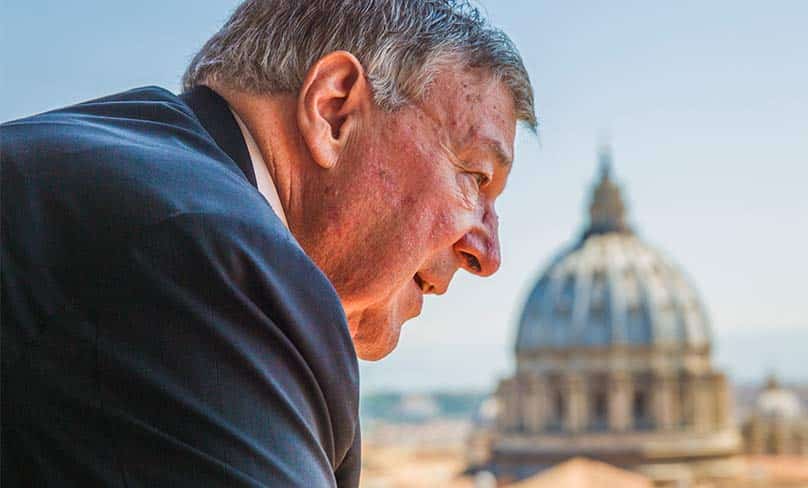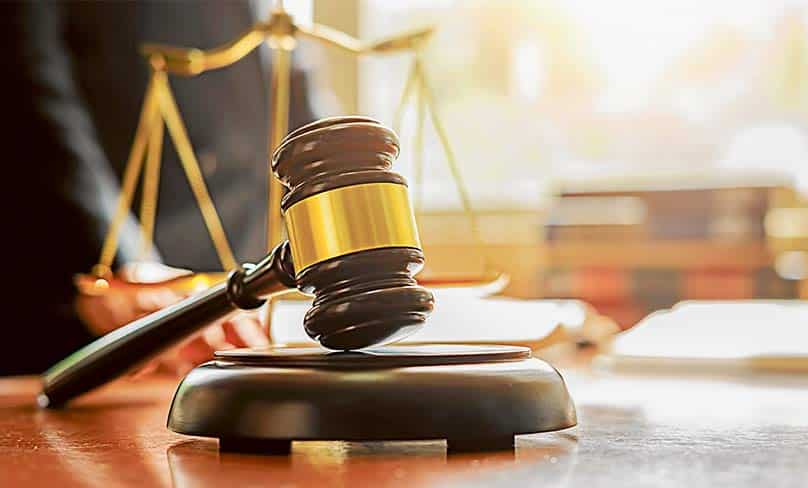
It is almost three years to the day since I had my first proper conversation with Cardinal George Pell.
In December 2015, I had written an article going through the key allegations made against him during the Royal Commission into Child Sexual Abuse and the evidence presented to that Commission and then – convincingly, I think – argued that the allegations were not supported by the evidence.
A copy of the article had found its way to the Cardinal, so when I visited Rome for the Year of Mercy, he arranged to have a coffee with me.
I remember the meeting clearly; after all, it’s not every day that you have a private audience with a Cardinal.
He began by commenting that coming to his defence was an unpopular action. “Your Eminence,” I replied. “I wasn’t aiming to defend you. I just wanted to tell the truth. If it served you, then that’s good, but it is not the purpose of my work.”
He seemed surprised but pleased with my response and encouraged me to keep pursuing the truth.
See related article: Fr Frank Brennan SJ: The Pell Verdict
I have been thinking about that conversation this past week, as news of the Cardinal’s conviction became public and details of the claims against him became known.
In my attempts to get my head around the gravity of this moment, and my internal conflict about whether I express my thoughts about the case, I kept returning to that original reason for my meeting him at all: the pursuit of truth, wherever it may lead. It is in that spirit that this week’s column is written.
Like all of you, I wasn’t in the court room to hear the evidence and I am relying on what I am seeing reported.
As others have said, from what is being reported and based on my own experience of being in a Cathedral for a Mass at which an Archbishop is presiding, it is difficult to understand how a jury could have concluded that the claims against the Cardinal were proved beyond reasonable doubt.
The Court of Appeal will have the opportunity to review all the evidence that the jury saw, and I look forward to hearing what they have to say.
There are many in the public and even within the Church who object to anyone saying that they believe the appeal court should review the conviction, or that we should wait until the appeal is heard before making a final judgment.

You only have to look at the vitriol levelled at Archbishop Anthony Fisher earlier this week because he urged people to not rush to judgment.
‘You weren’t on the jury,’ they say. ‘You didn’t hear the evidence, so what gives you the right to question it?
A jury of his peers found him guilty and that should be the end of the story.’ It’s an attractive argument, to be sure, but it misses a couple of key points.
The first is this: the very existence of a Court of Appeal is a manifestation of the judicial system’s acceptance that a judge or jury at first instance can make an incorrect decision.
To review the decision of a lower court on facts and/or on law is the raison d’être of an appeals court; so aware were we of the likelihood of mistakes being made, that we built a process of review into our court system.
To seek recourse to a higher court is not an insult to our justice system, it is an expression of confidence in it.
And the second: it is okay to put our institutions to the test, to ask questions of them about how they uphold truth and justice.
See related article: Vatican announces canonical investigation of Cardinal Pell
The Catholic Church knows well that unquestioned authority can sometimes lead to an abuse of power, and we are a better Church for having our once-unquestioned authority put under scrutiny.
So, I await the outcome of the appeal, which could be many months from now.
In the interim, what’s a Catholic to do? How do we respond? In many ways, our response to this extraordinary moment in the Church in Australia is the same whatever the outcome of the appeal.
If the end of the legal process declares that he is guilty as convicted of these horrific crimes, then the Church in Australia needs a generation of saints to rise up and overcome the evil that has infiltrated even our highest ranks.
If it declares him wrongly convicted, then the Church in Australia needs a generation of saints to rise up because we are facing challenges to the faith that are unprecedented in this country.
Whatever the ultimate outcome and whatever we think of the verdict, we need to busy ourselves in the pursuit of truth, of holiness, and of the service of our brothers and sisters.
It’s what the Church, and the country, and the Cardinal, all need from us right now.
